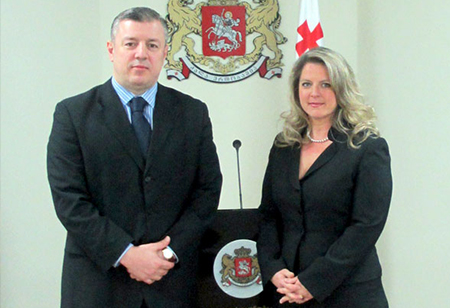Parliament approves new Tax Code
Georgia welcomes Estonian Taxation Model

Georgia will soon enjoy the benefits of a more simplified and liberal Tax Code.
The new Tax Code will contribute to improving the investment climate, attracting more investors and additional capital to the country.
Parliament of Georgia approved amendments to the Tax Code at its third reading on May 13 with 85 votes in favour and none against.
The amended Tax Code Law which has modified Georgia’s income tax rules will come into force in January 2017.
Georgia’s economic team created the amendments to align the country’s tax system with the Corporate Income Tax (CIT) – the Estonian Taxation Model. Under the Estonian Taxation Model all businesses, except profit-sharing businesses, should be exempt from income tax.
More specifically, if a company reinvests their profit they will no longer be obliged to pay income tax. In other words if a private entity does not receive a dividend from his/her company, he/she will not pay income tax meaning he/she will not pay tax for the reinvested money.
A dividend is a sum of money typically paid annually by a company to its shareholders out of its profits.
However, Georgia’s tax rules will not change for companies or individual entrepreneurs who are prohibited from profit-sharing. This includes individual entrepreneurs, insurance and micro financing organisations, banks, public legal entities and non-profit organisations.
Georgia’s Finance Ministry announced the new Tax Code would bring the following positive results to the country:
- Will accelerate economic growth;
- Will increase the access of companies to financial resources;
- Will increase the liquidity of business assets;
- Will increase investments in Georgia;
- Will increase the amount of capital in Georgia;
- Will increase the sustainability of businesses during times of crisis;
- Will reduce external financial constraints;
- Business will have more opportunities for development;
- Will establish a more attractive climate for starting a business and production in Georgia; and
- Will simplify tax accounting and administration.
Furthermore the Ministry said the amendments to the Tax Code will cause the following changes:
- During tax disputes, confiscation of bank accounts will happen only if this is decided by the court. Until now the Revenue Service had the right to sequester bank accounts without the court’s involvement.
- Imported goods will be exempt from Value Added Tax (VAT), which will simplify tax administration;
- About 100,000 taxpayers will be exempt from tax debts. More specifically taxpayers will not pay tax debts that were accrued before 2011 and will not pay tax sanctions which were accrued before 2013; and
- Tax system will be controlled only by the tax authorities.
Georgia’s Finance Minister said in March this year the country’s new Tax Code would be implemented in three stages.
First stage – Changes will be applied to Value Added Tax (VAT). Imported goods will be exempt from VAT, which will simplify tax administration. The change will become operational once the new Tax Code Law comes into force.
Second stage – Income tax will be replaced by profit-sharing tax, which will enter into force from January 2017.
Third stage – Changes will apply to the financial sector from January 2019.
The Government of Georgia started working to simplify the country’s Tax Code after Georgia signed its Association Agreement (AA) deal with the European Union (EU) in mid-2014.
Since then Georgia’s economic team has worked to improve the country’s investment climate, attract more investors and additional capital to the country. In this process the Government invited the business associations and organisations to use their opinions in decision-making processes. Non-governmental institutions were also actively involved in modifying the country’s tax rules.
Georgia’s partner donor organisations, especially experts from the United States Agency for International Development (USAID), Governing for Growth (G4G) and officials from Estonia, were instrumental in improving Georgia’s Tax Code.
 Tweet
Tweet  Share
Share













